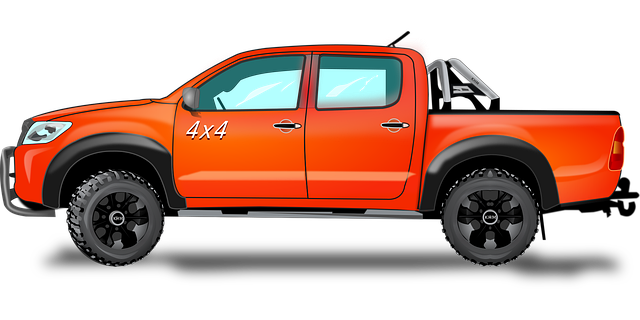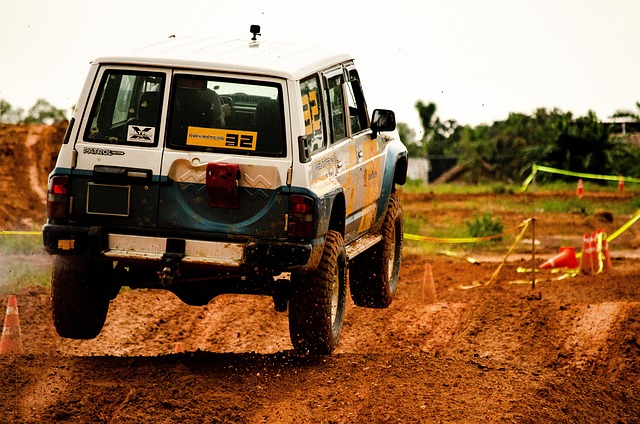ABS sensors, crucial for modern vehicles and especially Brownsville 4WD Club members' off-road safety, monitor wheel speed to prevent locking during braking, enhancing control on treacherous terrain. Understanding their function is vital for drivers to navigate hazards like skids or rollovers. Common issues include corrosion, debris damage, and age-related failure, requiring regular maintenance such as fluid checks, sensor cleaning, and diagnostic scans to ensure a secure off-road experience in the context of Brownsville 4WD Clubs.
“ABS sensors are critical components in modern vehicle safety systems, particularly for 4WD enthusiasts in Brownsville clubs. This comprehensive guide explores the fundamental workings of ABS (Anti-Lock Braking System) sensors and their pivotal role in enhancing braking performance on off-road trails. We’ll delve into the technical aspects, including how these sensors enable precise control during emergency stops. Additionally, we offer insights into common issues, troubleshooting tips for 4WD owners, and maintenance strategies to ensure ABS sensors provide reliable protection for years to come.”
- Understanding ABS Sensors: A Fundamental Overview
- The Role of ABS in 4WD Vehicles: Why It Matters for Brownsville Clubs
- How ABS Sensors Work: A Technical Explanation
- Common ABS Sensor Issues and Troubleshooting Tips for 4WD Enthusiasts
- Maintenance and Longevity: Ensuring Your ABS Sensors Last
Understanding ABS Sensors: A Fundamental Overview

ABS sensors are an essential component in modern vehicles, particularly those belonging to Brownsville 4WD Clubs enthusiasts. These sensors play a critical role in enhancing safety and vehicle control, especially during off-road adventures. By monitoring wheel speed, ABS sensors help prevent wheels from locking up, allowing drivers to maintain steering ability even on treacherous terrain.
In the context of 4WD vehicles, understanding how ABS sensors function is key. When a wheel starts to lock during braking, the sensor detects this change in speed and sends a signal to the anti-lock braking system. This prompt action prevents the wheels from skidding, ensuring better control and reducing the risk of accidents, especially in challenging off-road conditions faced by Brownsville 4WD Club members.
The Role of ABS in 4WD Vehicles: Why It Matters for Brownsville Clubs

Anti-lock Braking Systems (ABS) play a critical role in 4WD vehicles, especially for those enjoyed by Brownsville 4WD Clubs. These systems prevent wheels from locking up during hard braking, allowing drivers to maintain control and steer even on treacherous terrain. This is particularly important for off-road adventures where sudden stops are common and the need for precise handling is paramount.
For Brownsville 4WD Clubs, ABS enhances safety and capability. It enables members to navigate challenging trails with confidence, knowing their vehicles can handle unexpected situations. With ABS, drivers can brake harder and steerer more accurately, avoiding potential hazards like skids or rollovers. This advanced technology contributes significantly to a more enjoyable and secure off-road experience for all participants in the club.
How ABS Sensors Work: A Technical Explanation

ABS sensors, or Anti-lock Braking System sensors, are crucial components in modern vehicles’ braking systems. These sensors play a vital role in enhancing safety for drivers and passengers, especially during emergency stops or on Brownsville’s rugged off-road trails frequented by 4WD clubs. The technology works by constantly monitoring wheel speed, which is essential for effective braking. Each ABS sensor is strategically placed near each wheel, transmitting data to the vehicle’s control unit.
When a wheel spins faster than others during hard braking, indicating a potential lockup, the sensor signals the control unit. This triggers an intricate process where the brake pressure is modulated to prevent wheel lock while maintaining steering control. For 4WD enthusiasts exploring challenging terrains, ABS sensors ensure that vehicles can navigate through mud, sand, or uneven trails without losing traction or stability, making off-road adventures safer and more enjoyable.
Common ABS Sensor Issues and Troubleshooting Tips for 4WD Enthusiasts

ABS sensors, crucial components in modern vehicles, can often fall victim to various issues, especially in rugged 4WD vehicles beloved by Brownsville 4WD Clubs members. Common problems include sensor corrosion, damage from road debris, or even failure due to age. When an ABS sensor malfunctions, it can trigger the Anti-Lock Braking system’s inoperability, leading to reduced vehicle safety and handling.
Troubleshooting these issues requires a systematic approach. Start by inspecting sensors for visible damage or excessive wear. Clean corroded sensors with appropriate solutions, ensuring they are free from debris. If a sensor is damaged beyond repair, replacement is recommended. Brownsville 4WD Clubs enthusiasts can benefit from consulting vehicle manuals or seeking advice from experienced members to diagnose and resolve ABS sensor problems effectively.
Maintenance and Longevity: Ensuring Your ABS Sensors Last

ABS sensors, like any other automotive component, require regular maintenance to ensure optimal performance and longevity. In Brownsville’s vibrant 4WD clubs, where off-road adventures are common, it’s essential to stay on top of ABS sensor care. Regular fluid checks and replacements, along with thorough cleaning of the sensors, can prevent buildup and debris that might clog these critical systems.
One often overlooked aspect is monitoring the sensors’ condition through diagnostic scans. Regular trips to trusted auto shops or utilizing advanced scanning tools can help identify any faults early on. Prompt attention to ABS sensor issues can save drivers from unexpected failures, enhancing safety during intense 4WD excursions in the local terrain.
ABS sensors play a pivotal role in modern vehicle safety, especially for Brownsville 4WD Clubs enthusiasts. By understanding their function and common issues, club members can ensure optimal performance and longevity. Regular maintenance is key to preventing costly repairs, allowing these off-road adventures to continue smoothly and safely. This knowledge base empowers 4WD owners to navigate the trails with confidence, knowing their vehicles’ critical systems are in top form.



